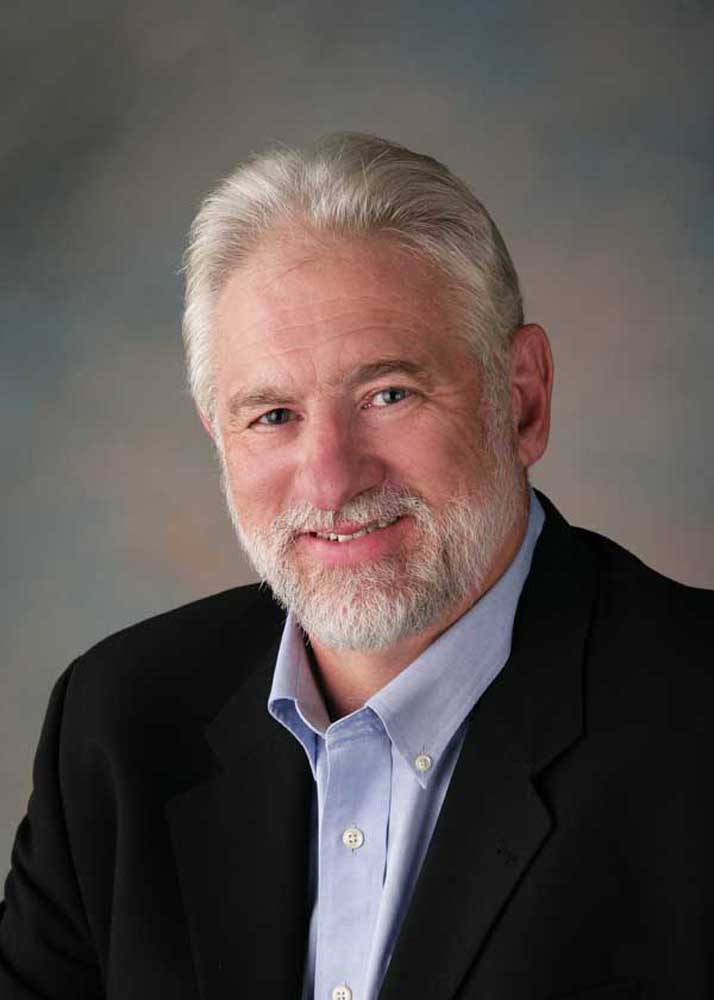Washington health officials halt alternative autism treatment
Published 12:00 am Monday, January 19, 2015

- Smith
A mother’s pleas to stop an alternative medicine physician from performing potentially harmful treatments on her son were apparently not convincing to health officials in Oregon.
But when the questionable treatment regimen continued in Washington state under a different physician, officials there quickly put a stop to it, even barring that physician from treating patients under 18 and from being anyone’s sole health care provider.
The patient in this case is Victor Probert, now 19, who grew up in Central Oregon. When he was diagnosed with autism at age 4, his parents were desperate to find anyone who could help their son, but few providers in Central Oregon offered such services at the time. They took him to an Oregon City alternative medicine physician in 2003, right around the time their divorce proceedings began.
Autism is a complex developmental condition that impairs individuals’ abilities to communicate and interact and often involves unusual behaviors and rituals, some of which can cause harm to oneself and others. Centers for Disease Control and Prevention estimates put the U.S. autism rate among children at around 1.1 percent.
Eventually, the divorce became a custody battle. Victor’s father, Randy Probert, won full custody in 2008.
Over time, Victor’s mother, Suzy Combs, became increasingly concerned about the dozens of supplements, prescription drugs and intravenous treatments her son was receiving. When she tried to do something about it, she was quickly faced with what little power she held over her son’s care.
“The more time went on, the more uncomfortable I got,” said Combs, who moved from Bend to Boulder, Montana, in July 2011. “There were times where he seemed like he was zoned out, and I just believed he was on too much stuff.”
Combs’ case, the subject of a 2011 Bulletin article, highlights the complex relationship between medical science and the legal system. Although the mainstream medical community sides with Combs, her lack of full custody prevented her from having a say in her son’s treatment.
A Deschutes County judge in 2011 refused to reopen her case and hear the evidence she’d gathered around the potential harms that could come from Victor’s treatments, and the Oregon Board of Medicine declined to take action against his physician, Dr. John Green. The board cannot reveal the contents of investigations unless they result in discipline, but Combs provided documents proving the board investigated Green’s treatment of Victor.
Chelation therapy
The hallmark of Victor’s treatment was chelation therapy, which involves using medications that cleanse the body of toxic chemicals and heavy metals by binding to them and passing them out of the body. It’s typically used in patients with heavy metal poisoning, such as lead poisoning, but some practitioners believe it can remove toxins from the body that contribute to symptoms of autism.
There is no scientific evidence supporting chelation’s effectiveness in treating symptoms of autism, and the federal government — in addition to a number of prominent medical organizations — has warned it has caused serious injuries and death.
Dr. Jeffrey Brent, a Denver toxicologist, said providers use a number of different medications as chelating agents, some of which can strip the body of crucial electrolytes such as calcium, resulting in serious injury or death. Current medical evidence does not support the use of chelation therapy to treat symptoms of autism, although many alternative medicine practitioners claim it’s effective, Brent said.
“People do desperate things, and in the end, despite their good intentions, they could end up harming their children by letting them fall prey to some of these practitioners,” he said.
Brent said he believes Green should have been disciplined.
“He’s using unjustified, potentially harmful therapies that are not accepted by science or the current state of medicine,” Brent said.
On several occasions, Combs said Victor held his head and cried as she drove him home following chelation treatments.
In October 2013 — about a year after the Oregon Board of Medicine finished its investigation of Green — a statement appeared on its website condemning chelation therapy for the treatment of any medical condition except heavy metal poisoning.
“Relying on this treatment alone and avoiding or delaying evidence-based medical care for conditions other than heavy metal poisoning may pose serious health risks,” according to the statement.
Combs said she believes the statement resulted from her complaints against Green.
Questionable treatment
It wasn’t until Randy Probert moved to Kennewick, Washington, in 2010, taking Victor with him, that Combs began to see some success in her fight against her son’s alternative treatment regimen.
She wrote to Washington’s equivalent of the Oregon Board of Medicine, the Medical Quality Assurance Commission, complaining about not being able to obtain records from Victor’s new physician, Dr. Stephen Smith.
Green, who wrote in a fall 2011 letter to Combs he would no longer treat Victor because of continued “threats” from Combs, referred Victor to the alternative provider in Pasco, Washington.
But the commission already had its eye on Smith. It had placed him on a probationary license in February 2010 for failing to comply with the terms of an agreement following inappropriate treatment of a former patient, according to commission documents.
In that case, he diagnosed a teenage patient who had an enlarged liver with mercury toxicity and possible Lyme disease and gave her IVs filled with hydrogen peroxide using a mediport, an appliance installed beneath the skin to assist with IV use. The following month, the patient went to the emergency room with a blood clot, a common side effect of using a mediport.
When her symptoms didn’t improve, she saw a different physician, who diagnosed her with autoimmune hepatitis, a serious condition that leads to cirrhosis and liver failure if not treated.
The commission criticized several aspects of Smith’s work, including failing to refer his patient to a specialist once an ultrasound revealed an enlarged liver, unclear evaluation and assessment and unjustified use of a mediport, which carries significant risks. Smith’s treatment, according to the commission, “demonstrates a fundamental lack of clinical-medical knowledge essential to formulate a valid diagnosis.”
‘Just a vendetta’
Smith sees things differently. In an interview, he said the commission uses any excuse to attack integrative medicine.
“This is just a vendetta,” he said.
Smith said Green had warned him that accepting Victor as a patient would almost certainly make him the subject of Combs’ complaints, which he said proved to be true. At one point, Smith said Combs sent him a letter threatening another complaint to the commission if he didn’t stop treating Victor.
But once Combs’ complaints directed the commission’s attention to Smith’s treatment regimen, the group took issue on a number of points, according to commission documents. The commission faulted Smith for not performing a physical exam when he first saw Victor, instead relying on Green’s treatment protocol.
That wasn’t by neglect. It was by design, Smith said. Patients who have autism tend to become frightened in clinical settings, he said.
“The last thing we need to do to make them comfortable is to start grabbing them and opening their mouths and prying at them,” Smith said.
The commission also pointed out that Smith’s notes reported very high levels of lead in Victor’s body but did not contain lab results. Smith said that’s because he didn’t perform a lead test, instead relying on Green’s test. In fact, Smith said he didn’t perform his own lead test until August 2012, more than a year after he began seeing Victor. That test showed 3.7 micrograms per deciliter of lead. Anything less than 5 micrograms per deciliter is considered normal in children, or less than 20 in adults.
License restrictions
In November 2014, the commission restricted Smith’s practice to adult patients, barred him from serving as a primary care provider, made him agree to annual inspections, pay a $1,000 fine and stop performing a lead test called provoked urine testing, which uses compounds to flush heavy metals out of the body through urine.
Most doctors check patients’ lead levels using blood tests, but alternative medicine providers such as Smith and Green don’t believe blood provides a useful picture. Since blood is waterlike, lead passes through it quickly, Smith said.
Richland, Washington, resident Jennifer Olson, a patient of Smith’s along with her husband and — until November — her three children, said her family has seen significant improvements in their respective ailments because of Smith. Her kids’ diagnoses include autism, a mild form of autism and attention deficit hyperactivity disorder.
That her kids, ages 10 to 14, can no longer see Smith “rips me to pieces,” said Olson, 43.
“I cannot tell you how rare it is to find a doctor who will work with you and not look down on you as a mom and really take what you say about the kid and look outside the box for answers when your kids don’t fit boxes,” she said. “Our kids don’t fit boxes.”
Victor turned 18 Sept. 6, 2013, rendering him an adult in the eyes of the law. However, his condition makes him unable to care for himself without assistance.
At a March 2013 guardianship hearing in Benton County, Washington, Randy Probert, Victor’s father, was granted guardianship. Now, Combs said, she can’t even get medical records about her son, although she believes she should be able to.
Combs said a document she received from her ex-husband said Victor is now seeing a more traditional primary care provider. Probert could not be reached for comment.
Although it’s likely too late to make a difference for Victor, Combs said she hopes sharing her experience will prevent other parents struggling to find help for their autistic children from falling for treatments that could harm them.
“At the beginning, you feel desperate,” she said. “I couldn’t find anybody.”
— Reporter: 541-383-0304, tbannow@bendbulletin.com






